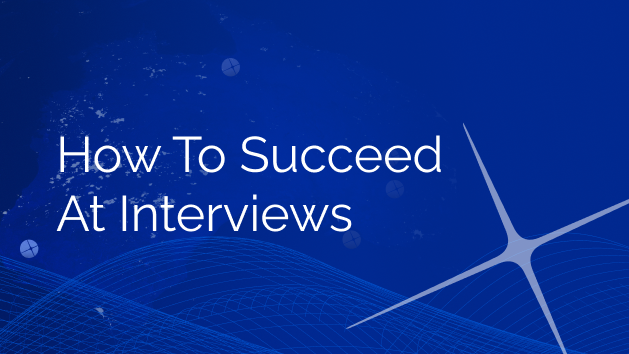Notes for Candidates It’s up to you at the interview Interviews are a two-way process. They are an opportunity for you to find out more about the employer and vice versa. It is a competitive environment and preparation is the first essential step towards a successful interview. Your role is to convince the employer that you are the most suitable applicant. No matter how impressive your career record is to date, you will be competing with other candidates for the position you seek; consequently, the interview is an important step toward the fulfillment of your career ambitions. The interviewer will be searching out your strong and weak points, evaluating your qualifications, skills, and intellectual qualities, and will probably probe deeply to determine your attitudes, aptitudes, stability, motivation, and maturity. The following hints and guidelines, together with advice provided by your Ignite Consultant, will better equip you to make the right impression during interviews with prospective employers. How to succeed at interviews It is vital to be prepared. Preparation is the first essential step for a successful interview. Know the company, the organisation, the department. Sources of information include: Friends and colleagues Internet Your recruitment consultant Think of common ground between you and the employer. Demonstrate how your capabilities might be useful to the employer. Anticipate questions. Prepare answers to questions such as: Tell me about yourself What kind of job are you looking for? Why did you choose this career? What are your strengths? What are your major weaknesses or limitations? What do you know about our company? What have you done that shows initiative? What do you see yourself doing five years from now? Tell me about a time when you demonstrated leadership/negotiation /teamwork skills Responding to Questions To prepare for these questions you must be armed with examples. Employers would like you to respond using the STAR methodology. Your response example should be based on this method. You can do this by: S: Outlining the Situation you are going to talk about (the challenge, or issue) T: Explain what needed to be done in this situation, what Task were you trying to achieve? A: Explain what Actions you took – what you did, if there were alternative actions you could take, and why you selected the one you did (shows decision-making and problem-solving) R: Detail the Results of your actions. What you achieved and if you met your objectives. *If you are interviewing with a Federal Government Agency, this is the correct method to follow as this is how Federal Government agencies score your questions at the end. Where possible, add in a reflection of the outcomes: if you would do something differently next time. This shows the interviewer you learn from experience. Remember to think of the interviewer’s point of view. They are looking to hire someone. Their purpose is to find out the following: Do you have the knowledge and skills to perform the role? Do you fit into the workplace culture/team? Do you have the energy and enthusiasm for the role? Do you have the capacity to grow with the job? To find the answer, the interviewer will be examining: Your personality Your professionalism Your skills and intellectual qualities Characteristics that employers prefer are: Drive – a desire to get things done Motivation – enthusiasm and willingness to give that little bit extra Honesty/integrity Team Player – is flexible and gets along with others Energy and a positive outlook Determination – will see a difficult problem through Self-confidence – poise, being friendly with all employees across all levels Reliability Pride in a job well done; paying attention to the details Ability to follow procedures Skills and Intellectual qualities that employers prefer are: Efficiency Communication skills Listening skills Emotional intelligence Interview do’s Dress for the interview in a neat, clean-cut, style and arrive a few minutes early Think positive – the interview will be a success Remain aware of your body language and remember to smile Look the interviewer/s in the eye and give a firm handshake Remember the interviewer(s) name(s) (you should have this information prior to the interview) Ask questions about the role so you can relate your background and skills to the position Make your points in a factual, sincere manner Finish on a positive note Any questions? At the end of the interview, the interviewer usually asks if you have any questions. This is a golden opportunity to create a good impression. This is the time to elaborate on your strengths that weren’t covered in the interview. Good general questions include: Why is the position vacant? Where is the previous incumbent now? What are the employer’s expectations in the first six months and after a year? What kind of training and professional development is available? How regularly do performance appraisals occur? What format do they follow? What is a typical day like? After the Interview After the interview, review your performance. If you are unsuccessful, don’t be discouraged as very few people are offered the first job they apply for. Make sure you liaise with your Ignite consultant to talk about the interview. They will want to talk with you before the interviewer calls them. If you are interested in progressing further, it will assist your consultant to know how you feel about the position as well as what your perception of what the client's reaction is likely to be. We’re here to help you. If we have put you forward for a job, your recruitment consultant is a good source of feedback on your interview. You can also use this information to improve your performance next time. Be sure to ask for feedback to assist you in your next application.
Read More